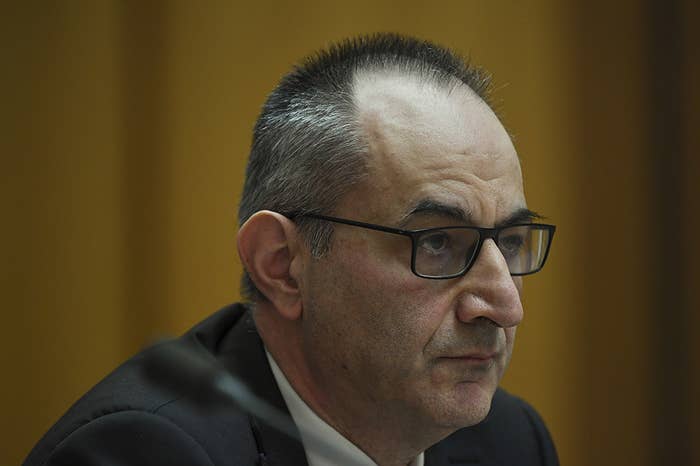
The Australian government has publicly blamed the medevac law for increasing rates of self-harm among the refugees and asylum-seekers detained in Papua New Guinea.
The Department of Home Affairs made the argument as it pushed for the repeal of the medevac law in a submission to a parliamentary inquiry. The law, designed to make it easier for offshore refugees to access medical treatment, passed against the government’s wishes in February 2019.
The submission referred to the upwards trend in “self-harm related incidents” since late 2018 among the people Australia holds in Papua New Guinea. It said self-harm incidents increased during the parliamentary debate on the medevac law, and “more significantly” since the election in May.
The department said that 39 of the 72 people transferred to Australia under medevac had undertaken an act of self-harm, and 19 had threatened self-harm since the law was introduced.
“Home Affairs is concerned that self-harm is perceived as the most expedient means of accessing medical transfer under the provisions,” the department said.
The medevac law gives doctors more control over medical transfers from offshore detention in Nauru and Papua New Guinea to Australia. Doctors’ recommendations for transfer must be approved within 72 hours, unless Home Affairs minister Peter Dutton objects on the basis of security or medical necessity. An independent panel of medical experts can review his refusals on medical grounds.
Of the 60 submissions to the inquiry published so far, the department’s is the only to support the repeal of medevac.
National Justice Project lawyer George Newhouse, who won medical transfers for a number of refugees in court before medevac was introduced and now helps to facilitate medevac applications, strongly rejected the department’s claims.
“The hypocrisy of the government’s position is breathtaking,” he told BuzzFeed News. “There is no increased risk since medevac. Quite the contrary. Not a single life has been lost since the medevac law was passed.”
“Raising hypothetical risks does not outweigh the fact that 12 people died under our government’s watch before medevac, and not a single person has died since. Many of those deaths would have been avoided had medevac existed at the time.
“Our government has put vulnerable individuals in a place that clinicians agree causes mental health disturbances over time and now they want to blame life-saving legislation — that depoliticises life and death decisions — for the damage that this government created. Surely no one will accept that specious argument.”
The department states that 72 people had been transferred to Australia under the medevac law at the end of July, including four accompanying family members. Twenty-three cases were referred to the independent panel, and the panel overturned Dutton’s refusal on 10 occasions. It agreed with him 13 times.
Of the 72, three had been admitted to hospital for longer than a week, 14 are receiving outpatient care, one refused treatment, and 54 are being treated in detention onshore.
All but three of the 72 were from Papua New Guinea and most were transferred in June and July.
The submission also argues that medevac undermines Operation Sovereign Borders by creating “the false perception of a pathway to settlement in Australia”. It complains that the law does not create a mechanism to return refugees once they are transferred to Australia.
It also argues that Dutton’s power to object to transfers on security grounds is too narrow and that the provisions impinge on the sovereignty of Papua New Guinea and Nauru.
The department wants a return to the pre-medevac system, in which the government made transfer decisions on a case-by-case basis with advice from the secretive Transitory Persons Committee.
That system continues to operate alongside medevac. In the five months since medevac commenced, 54 people have been transferred to Australia under the preexisting provision.
BuzzFeed News has previously revealed that the committee was established to consider not only medical considerations — but also the financial, legal, diplomatic, and policy implications of transfers to Australia.
The submission also addresses resettlement of people held in offshore detention in third countries. At the end of July, 604 refugees had resettled in the United States under an agreement struck between former prime minister Malcolm Turnbull and former president Barack Obama.
In July, New Zealand prime minister Jacinda Ardern renewed her offer to resettle 150 people. The department “acknowledges and thanks New Zealand for its generous offer” but said it preferred to focus on “maximising resettlement opportunities under the much larger resettlement arrangement” with the US.
In negotiating new resettlement deals, the department said in the submission it had to be “careful not to undo [its] good work in countering people smuggling”.
